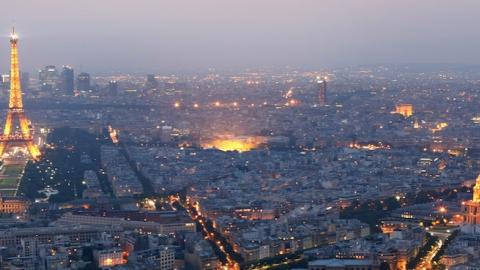The French have a clear vision of how want Britain's decision to leave the EU should play out: British businesses out of the EU, French businesses into the U.K.
President Hollande and co. are eager to bar Brexiting Britain's financial sector from doing business in the EU so that French firms that could not compete with London's massive competitive advantages can fill the gap. And they are delighted that Jean-Claude Juncker, president of the executive arm of the EU, has appointed Michael Barnier to be the lead EU negotiator of the terms of Brexit. Barnier is a eurocrat the most hostile to and loathed by Britain's financial sector. À bas les rostbifs.
But France is appalled that Britain's new prime minister, Theresa May, wants to take another look at the deal cut by her predecessor for a new nuclear plant at Hinkley Point. The deal: government-majority-owned Électricité de France (EDF), with some financing from the People's Republic of China, which hopes to learn enough to build the next U.K. reactor to a Chinese design, will build the 18 billion euro ($23 billion) plant (original estimate, due to rise) to supply British customers with electricity at a guaranteed inflation-proof price set at twice the current wholesale price. For the next sixty years. One estimate puts future subsidies to the French at 30 billion euro. No wonder Theresa May wants another look at the numbers.
And there are not only financial but security implications of this possible source of 7 percent of Britain's future power supply. After all, the spread of Muslim extremism is a top worry in Britain. According to Khalid Mahmood, a member of British Parliament, there are now more than twice as many British Muslims fighting for Islamic State than there are serving in the British armed forces. In addition, Nick Timothy, May's joint chief of staff, has been warning that Beijing's involvement gives China the power to "shut down Britain's energy production at will."
The French are horrified at this review. As they see it, the new EU-U.K. relationship is this: most U.K. financial firms area barred from doing business in the EU while France's nuclear industry free to do business in the U.K., and at guaranteed prices. And if May is asked to explain that to her constituents, well, she might try to copy the famous French shrug while muttering c'est la vie. And, like her predecessor, rely on the fact that the high utility bills won't hit post boxes until the Hinkley plant is completed, now scheduled for 2025 but with provision for indemnifying EDF for cost overruns should the completion date be pushed forward as much as eight years. Experience here suggests that eight years is an underestimate of the likely delay.
Oh, yes. Last week's economic news contains reports that the supposedly shattered British economy is continuing to grow at a nice pace, while France's, afflicted with EU rules and the German-favoring euro, has stagnated—zero growth, and with unemployment already at twice Britain's level. Frexit, anyone?


















